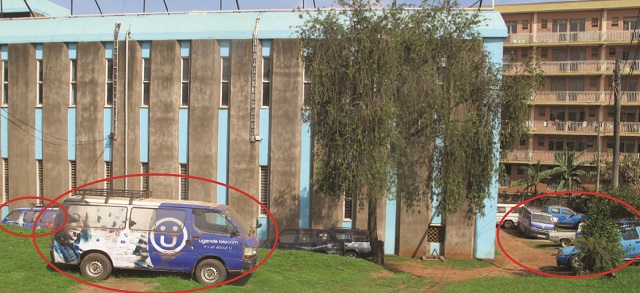
Experts commend move to protect bankrupt telco’s assets but say it needs a business plan that works
Business at Uganda’s oldest and troubled telecom company, Utl, took another twist when the government on April 28 announced it has finally put it under provisional administration.
The government, which recently took over Utl management from the major shareholder, UCOM of Libya in a recapitalisation dispute, had apparently pulled up and dusted an old law to keep away creditors baying to run off with the company’s assets in case of liquidation.
President Museveni is fighting to keep Utl alive because, although it is technically bankrupt, it serves government agencies with sensitive communication services including to the ministry of Finance, State House, Uganda Police Force, Uganda Revenue Authority, National Water and Sewerage Corporation and others. The company also employs 500 people, and contributes tax revenue to the government among other strategic reasons.
A few days earlier, one of the creditors; a technology company called Cameo had secured a court order demanding that UTL is liquidated and pays its debt of Shs 420 million.
Cameo’s move reportedly had the silent backing from other major UTL creditors; including big names like Uganda Revenue Authority, Uganda Communications Commission, telecom firms that interconnect with UTL and others.
At this point, it was not clear what could be done to save the company although President Yoweri Museveni had ordered the Minister of State for Investment and privatisation, Evelyn Anite, to ensure it is not liquidated.
As part of her salvage mission, Anite had brought in PricewaterhouseCoopers (PWC) to audit the company. The report PWC handed her had only bad news. It indicated that the company’s liabilities were almost five times higher than its assets recorded as Shs700 billion to Shs148 billion respectively; a debt to asset ratio that put it beyond salvage. Another major highlight of the report that PWC handed to Anite was that the company was operating illegally.
“That meant it had to be dissolved immediately,” Anite said, “It was tough for me; the President did not want the company to close because it is important to government.
Anite constituted a team that included renowned ruling NRM party lawyer Kiryowa Kiwanuka, businessman Patrick Bitature, and Attorney General William Byaruhanga to fix things.
Anite told The Independent that the trio advised her to use the Insolvency Act of 2011 to put the company under provisional administration.
“As government we have never used this law in a situation like this,” Anite said, “I am happy the company will not close.”
Putting the company under provisional administration is a complex ploy to buy time as more long-term interventions are worked out as Stephen Kaboyo, who served as Board Chairman before the company was put under provisional administration explained.
“The company is under heavy weight of liabilities and this sort of the situation informed the process that is going on today. The administration has kicked in which literally means that the assets of the company are protected from the creditors while at the same time the company continues with trading and strategies for turnaround be worked out.”
Under the arrangement, Anite appointed Bemanya Twebaze, the executive director of another government’s agency, the Uganda Registration Services Bureau (URSB), as the official receiver/provisional administrator. Apparently, under the cited section 198 of the insolvency Act, 2011, the head of URSB is mandated to play that role.
Sinking boat?
But when The Independent spoke to experts familiar with the workings of Utl, some said the government is bailing out a sinking boat using a basket.
A former top executive at the company told The Independent that Utl must be shutdown because its assets (vehicles, generators, cables, masts and others) are worthless and most of it is moldy. The former executive said that some of it could have been stolen and nobody knows where they are.
“If I had powers I would close it,” the former executive said. The other supporters of this view say that due to high levels of debt and corruption in government, it is not possible to turnaround the company.
But Anite dismissed fears over the huge debt. She said the good thing is that some of the creditors are government “which are easy to deal with”. She said that the administrator will also work with the government to sort out legal issues surrounding company ownership.
“I would like to promise Ugandans that we are working very hard to make the company great again,” she told The Independent. “Some people want it closed for reasons clear to them,” she added.
Anite could have been referring to information a source privy to this matter had given The Independent that some individuals that previously managed the company were working behind the scenes to ensure UTL is shut.
“It is clear that this company is struggling because of mismanagement,” the source said, adding there is no past manager that wants UTL alive because “any investigations into its operations would bring them to book.”
The past managers have been accused of self-serving instead of growing the company.
“They paid themselves big salaries, advocated for big health insurance packages and failed to pay for utilities like water, electricity, security and interconnection fees,” the official said.
But Kaboyo who headed the immediate past management says his team has not been involved in any wrongdoing and insists they worked beyond official working hours in a bid to turnaround the company fortunes.
 The Independent Uganda: You get the Truth we Pay the Price
The Independent Uganda: You get the Truth we Pay the Price




Kaboyo grow up!! It is not about how many hours you worked. Tell us where did you find UTL and where did you leave it? What were you doing when you “worked beyond official working hours”? Siphoning off money am sure.
Anyone earning UGX120M from a sinking company should be able to work even 24 hours.